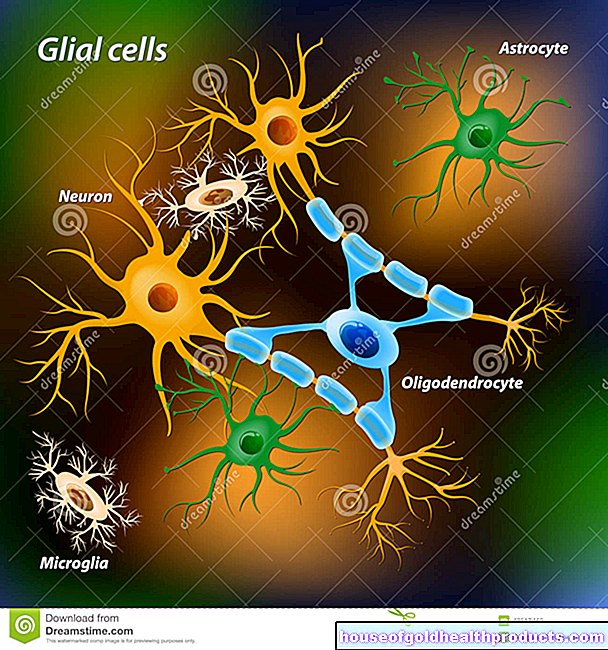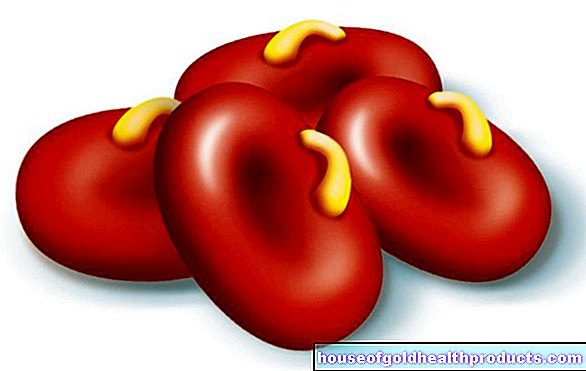Folic acid deficiency
Dr. med. Andrea Reiter is a freelance writer for the medical editorial team.
More about the experts All content is checked by medical journalists.A folic acid deficiency leads to impaired regeneration of red blood cells in adults. This results in dangerous anemia. During pregnancy, a folic acid deficiency can cause severe developmental disorders of the nervous tissue in the unborn child. Read about the effects that too little folic acid can have in the blood.
What is Folic Acid Deficiency?
Folic acid is important for the production of genetic material and thus for the growth and reproduction of cells, as well as for the production of red and white blood cells (erythrocytes, leukocytes). Folic acid is of vital importance for the embryo. The nervous tissue can only develop if the folic acid concentration is sufficient. Adults need around 400 micrograms of folic acid per day.
Folic acid deficiency: causes
Folic acid deficiency is rare but can occur under certain circumstances:
- in case of malnutrition
- from alcoholism
- during pregnancy and while breastfeeding due to an increased need for folic acid
- in inflammatory bowel disease
- with long-term antibiotic therapy
- when treated with methotrexate (chemotherapy)
Folic acid deficiency: symptoms
If there is a folic acid deficiency, red blood cells are produced that are not functioning properly. It leads to anemia. One then speaks of a “folic acid deficiency anemia” or a megaloblastic-hyperchromic anemia. Fatigue is the first sign of anemia due to folic acid deficiency. Other symptoms of this vitamin deficiency are:
- Tingling in the tongue, burning tongue
- Inflammatory red, "smooth" tongue
- paleness
- Difficulty breathing
- Inflammation of the mucous membranes (especially the lining of the intestines)
- diarrhea
- Loss of appetite and weight loss
- Cardiovascular diseases
- increased tendency to bleed
- fatigue
- Depression and irritability
In unborn babies who do not receive enough folic acid from their mother, there is a risk of developmental disorders of the nervous system. In the so-called spina bifida, a part of the spine remains open and the children are physically severely impaired.
Folic acid deficiency: diagnostics
Folic acid deficiency is usually not measured directly by the concentration of folic acid in the blood, but by the appearance of the red blood cells. In folic acid deficiency anemia, the red blood cells are enlarged and more stainable. This can easily be demonstrated in the blood count and is the most important indicator of a folic acid deficiency.
Tags: menopause travel medicine therapies
-infektion.jpg)

-ich-muss-die-seele-an-den-krper-anpassen.jpg)


























